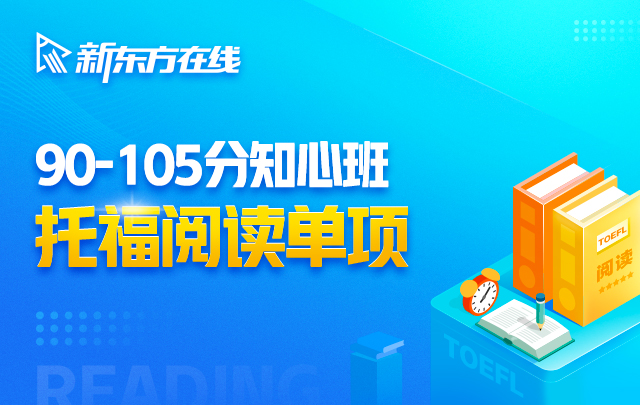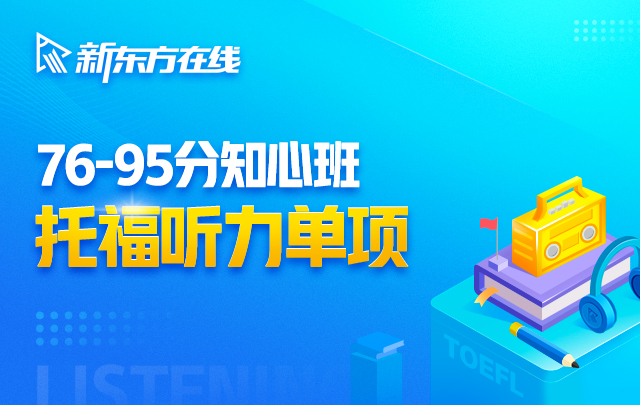出国留学申请个人陈述部分也是讲究写作技巧的,今天新东方在线小编就给大家分享留学申请个人陈述部分范文:教育学,希望能对你的留学申请提供借鉴。
范文1
In China as in the US, one can easily give up the career of a language teacher to become a lawyer or a businessman. I, however, gave up a promising legal and business career to become a language teacher, but I have never regretted it. In fact, the more I teach, the more committed I am to teaching. But not just teaching. Having battled with China’s traditional mode of teaching for several years, I now would like to help improve teaching in China by introducing new and more effective instructional technology and media into the country. For that, I would like to pursue an advanced degree in education in your country.
Now an English teacher at the training center of the China National Container Corporation, I graduated in 1995 from the Capital University of Economics and Business in Beijing, where I majored in business law. At this highly respected higher-learning institution, I received broad training that was both rigorous and vigorous. After four years of undergraduate studies, the strong logic inherent in law translated into strong logic in my thinking. With the knowledge and skills I attained in the law program, I boast the kind of intellectual maturity that would help me whatever I do. But law was never my first choice for a profession.
Starting from my high school days, I always dreamed of becoming a teacher. In the second year of high school, we once had to write an essay on the topic “what do you want to do when you grow up”. I proudly wrote, “I want to be a teacher!” But my parents shattered my dream by insisting that I pursue another profession. My father, an engineer with a Ph. D. degree, and my mother, a university teacher of English, had their reasons. Chinese teachers, particularly those teaching at the primary and secondary levels, are poorly paid and begrudgingly respected. Being young and inexperienced in the world, I acceded to their wishes when I was choosing my major for the university.
But my passion for teaching was not to be stifled forever. Giver any opportunity, it would burst out. Upon graduation with an LL. B. Degree, I first took up the position of a supervisor with the China National Container Corporation in charge of its Overseas Sales Department. As the job entailed frequent translation and interpretation between Chinese and English, I persisted in improving my English proficiency by attending various training courses and learning it on my own. My command of the foreign tongue became so good that, after about one year, I began to teach it to my colleagues on a full-time basis at the company’s training center. After a huge detour, my career finally got back on track.
What makes teaching so enjoyable to me is that it is a learning experience. I enjoy it the most when my students ask difficult questions, particularly questions that I have to think long and hard to answer. I also enjoy posing questions to students, but my questions are never intended to intimidate the students or even test their knowledge but rather designed to stimulate their minds. In the constant exchange of questions and answers, students and teachers improve themselves alike to the credit of the old Chinese saying: To teach is to learn. In my three years of teaching, I really have learned a great deal.
One of the things I have learned is the ability to not only deal with but also strike an accord with people of different backgrounds. My students at the training center are all adults accomplished in a variety of roles and professions. In most cases, they are older than I am. While I stand as their equals, I have served as their mentors and role models the same way as most teachers do their students. By so doing, I have won their trust and confidence in what I teach, which has helped to make my teaching powerful and effective.
To take full advantage of my teaching skills, I started in October 1996 to teach English and other subjects at the primary school I attended when I was a child. As the children I teach are at the age when I studied here, I am particularly sensitive to their needs and appreciative of their potential. Together with other teachers, I designed various training programs in calligraphy, art, writing, mental calculation, and English, programs that combine learning with entertainment. The kids n my class are now learning more and faster thanks to the fun they find everyday in my programs.
Entertainment is, however, by no means just a ploy I use to sweeten the bitter pill of learning for the children, but rather has its own intrinsic value. While kids can hardly learn well without being able to have fun, the lack of fun hurts more than the kids’ ability to learn. It can impair the kids’ emotional and psychological health to an extent that no amount of knowledge and skills drab teaching force-feeds into them can make up. Entertainment is therefore part and parcel of what we teachers have to provide to children if we are to help them grow up into productive members of the society. The way I see entertainment, it should be considered an end in education.
As China’s education is oriented overwhelmingly towards helping kids pass exams, entertainment is about the least on the mind of an average teacher or principal. In the rush to produce super kids as measured by the grades out of exams, the purpose of education is lost all too often. The curriculum is limited to subjects covered by mandatory exams. Students are seldom encouraged to come up with original ideas. Interaction between teachers and students is kept at a minimum in the classroom. The teachers compete to heap homework on the students, as do the parents. While everybody is tired to death, few kids get armed with the ability to take initiatives or solve real-world problems. It is high time that fresh approaches were brought in.
One of the ways to make a change to the Chinese classroom is to utilize new technologies and media of teaching. School authorities in China, as those elsewhere, increasingly realize the importance of computerization, and many of the better-off schools in China are already stacked with state-of-the-art computers. But reports say only a tiny fraction of those computers are adequately utilized. The situation with other educational technologies and media is no better. They are either absent from the school sitting or vastly under-used. Few Chinese teachers have acquired the know-how or the drive to make use of these modern facilities.
I therefore would like to pursue first a master’s degree and then a Ph. D. degree in instructional technology and media in the United States, where the use of modern educational facilities is undoubtedly the most advanced in the world. Judging by the information I have culled from your, website I think your institution is an American leader in the research and studies of this field. I am anxious to study under the seasoned guidance of your distinguished faculty. I hope that, after I complete my advanced training in your program, I can be a much more effective teacher in China, one that sets an example for all other Chinese teachers.
本文关键字: 美国留学
 人气课程
人气课程
 免费试听
免费试听

时长 : 28:16 主讲 : 费扬

时长 : 24:21 主讲 : 李冰洁

时长 : 12:20 主讲 : 张仪

时长 : 12:28 主讲 : 宋鹏昊

时长 : 6:58 主讲 : 黎铮

时长 : 20:03 主讲 : 齐小霞
 推荐阅读
推荐阅读
新东方在线留学频道为大家带来《美国院校图书馆介绍——哥伦比亚大学图书馆》一文,希望对大家的留学申请提供参考和借鉴。更多精彩内容
新东方在线留学频道为大家带来《美国院校图书馆介绍——耶鲁大学图书馆》一文,希望对大家的留学申请提供参考和借鉴。更多精彩内容,尽
新东方在线留学频道为大家带来《美国留学地区——西弗吉尼亚州》一文,希望对大家的留学申请提供参考和借鉴。更多精彩内容,尽请关注新
新东方在线留学频道为大家带来《美国留学地区——肯塔基州》一文,希望对大家的留学申请提供参考和借鉴。更多精彩内容,尽请关注新东方
新东方在线留学频道为大家带来《去美国留学哪个时间最佳呢》一文,希望对大家的留学申请提供参考和借鉴。更多精彩内容,尽请关注新东方
新东方在线留学频道为大家带来《去美国留学必备物品都有什么》一文,希望对大家的留学申请提供参考和借鉴。更多精彩内容,尽请关注新东
新东方在线留学频道为大家带来《去美国留学哪些东西要带哪些不需要带呢》一文,希望对大家的留学申请提供参考和借鉴。更多精彩内容,尽
新东方在线留学频道为大家带来《美国留学奖学金最多的前10所私立大学》一文,希望对大家的留学申请提供参考和借鉴。更多精彩内容,尽请
新东方在线留学频道为大家带来《美国留学生活费及学费费用需要多少》一文,希望对大家的留学申请提供参考和借鉴。更多精彩内容,尽请关
新东方在线留学频道为大家带来《到美国留学费用需要多少钱》一文,希望对大家的留学申请提供参考和借鉴。更多精彩内容,尽请关注新东方

 阅读排行榜
阅读排行榜
 相关内容
相关内容